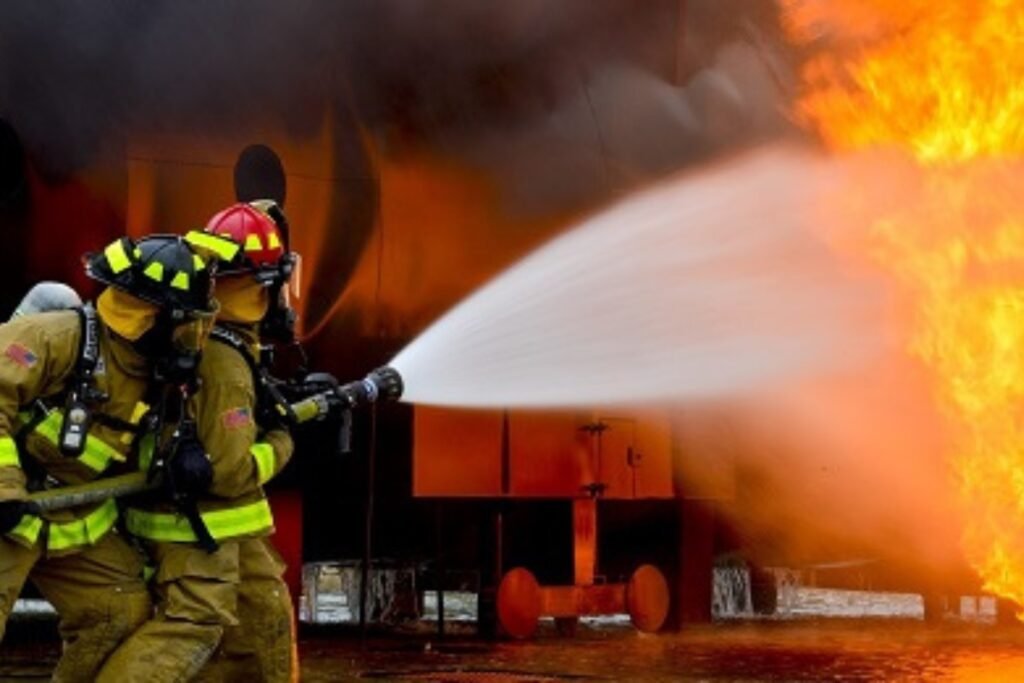Motor vehicle accidents are often unexpected and can leave you feeling disoriented, frightened, or overwhelmed. Whether it’s a minor fender-bender or a more serious collision, the steps you take immediately after a motor vehicle accident can significantly affect your safety, legal rights, and the outcome of any potential claims or lawsuits. Knowing how to respond in the critical moments following an accident is essential for protecting your health, preserving evidence, and ensuring that you receive the compensation you deserve.
This step-by-step guide will walk you through what to do after a motor vehicle accident, from ensuring your safety to collecting crucial evidence that can support your case if needed.
1. Ensure Safety and Call for Help
The first and most important step after any motor vehicle accident is to make sure everyone involved is safe. If possible, move your vehicle out of the way of traffic to avoid further accidents. Turn on your hazard lights to alert other drivers that there has been an accident. If the vehicles are immobile, try to stay inside them, especially if there is a risk of further danger (e.g., fire or passing traffic).
Call emergency services immediately. In many jurisdictions, it’s required by law to report an accident to the police, especially if there are injuries or significant property damage. The police will file an accident report, which is crucial for your insurance claim and any future legal proceedings.
When calling emergency services, provide the following information:
- Location of the accident.
- Description of the accident and any injuries.
- Your name and contact details.
Even if the accident appears minor, it’s a good idea to have medical professionals assess everyone involved, as some injuries (like whiplash or concussions) may not become apparent right away.
2. Document the Scene and Gather Information
Once you and others are safe and emergency services have been contacted, your next step is to document the scene as thoroughly as possible. The more evidence you can collect, the stronger your case will be if you need to file an insurance claim or pursue a personal injury lawsuit.
Here’s what you should do:
Take Photos: Use your phone or camera to capture clear photos of the scene, including the vehicles involved, any property damage, road conditions, traffic signs, and visible injuries. Be sure to take wide-angle shots to give a full picture of the accident scene.
Collect Information from Other Drivers: Exchange personal and insurance information with the other drivers involved in the accident. This includes:
- Full name, address, and phone number.
- Driver’s license number.
- License plate number.
- Insurance company name and policy number.
Witness Statements: If there are any witnesses to the accident, ask for their contact details and if they are willing to provide statements about what they saw. Independent witness statements can be valuable if there’s a dispute about fault.
Police Report: Make sure to get a copy of the police report. This report will detail how the police interpreted the situation, including any citations or arrests made, and can be essential when proving fault in an insurance claim or court case.
3. Seek Medical Attention
Even if you feel fine after the accident, it’s crucial to seek medical attention as soon as possible. Adrenaline often masks pain and injuries after an accident, so symptoms of internal injuries, soft tissue damage, or concussions may not be immediately obvious.
Prompt medical care not only ensures that your injuries are treated but also creates a documented record linking your injuries to the accident. This is critical for any motor vehicle accident claim or personal injury lawsuit you may pursue.
Keep in mind:
- Document all medical visits, tests, and treatments related to the accident.
- Follow your doctor’s advice and attend all recommended follow-up appointments.
- If you feel any new or worsening symptoms, contact your doctor immediately.
4. Report the Accident to Your Insurance Company
Once you have gathered all the necessary information and sought medical attention, you should contact your insurance company to report the accident. Be sure to provide them with a factual account of what happened, avoiding speculation or admitting fault. Remember, your insurer is there to help, but they will also assess the accident to determine the extent of coverage available.
When speaking with your insurance company:
- Be clear about what occurred and provide all the documentation you’ve collected.
- Report any injuries and treatment you’ve received.
- Be honest but avoid offering unnecessary details that could hurt your case.
- Ask for clarification on how your policy covers the situation.
In many cases, the insurance company will help facilitate repairs to your vehicle and can guide you through the claims process for injuries. However, if your insurer disputes liability or fails to offer a fair settlement, you may need to seek legal assistance.
5. Consider Legal Assistance
In some cases, a motor vehicle accident can lead to significant injuries or property damage that exceeds your insurance coverage. If you find that your insurance company is not providing adequate compensation or if the accident was caused by the negligence of another driver, consulting a personal injury lawyer may be in your best interest.
A personal injury attorney can help you understand your legal options, including whether pursuing a lawsuit or negotiating a settlement with the at-fault driver’s insurance is the right choice. They will also:
- Guide you through the process of filing a motor vehicle accident lawsuit.
- Help you gather additional evidence to support your claim.
- Represent you in negotiations with insurance companies or in court.
An experienced lawyer will ensure that your rights are protected and that you are compensated fairly for medical bills, lost wages, pain and suffering, and other damages caused by the accident.
6. Keep Track of Expenses and Lost Wages
As you recover from the accident, it’s essential to keep a detailed record of all expenses and losses related to the incident. This can include:
- Medical bills and out-of-pocket expenses.
- Receipts for medications, physical therapy, or rehabilitation.
- Records of lost wages if you were unable to work due to your injuries.
- Any other costs associated with your recovery or property damage.
This information will be crucial for accurately calculating the compensation you may be entitled to and ensuring you recover the full financial impact of the accident.
Conclusion
What you do immediately after a motor vehicle accident can have a significant impact on your ability to recover compensation for your injuries and losses. By staying calm, seeking medical attention, documenting the scene, and reporting the incident to your insurance company, you are taking crucial steps to protect yourself both physically and legally. In complex cases, involving a personal injury lawyer can help ensure that your rights are fully protected, and that you receive fair compensation for your injuries and damages.
By following these steps, you can focus on recovering from the accident while ensuring that your financial and legal interests are taken care of.


